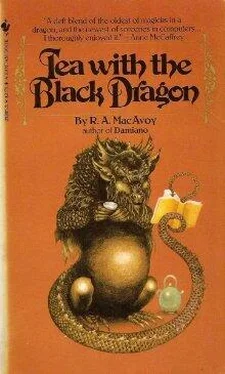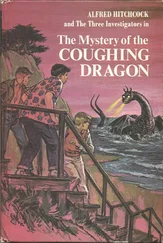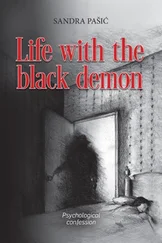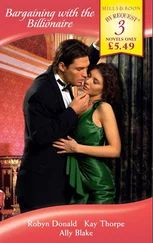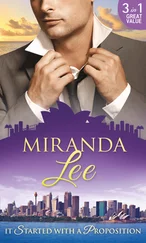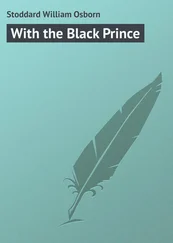She started the engine of the silver Mercury Zephyr and lurched into first gear. Her passenger was unaffected by the jerk; he had had his arm braced against the dash. It was not the first lurch of the day.
“Done? Oh yes. Donne. That’s John Donne, isn’t it? Punning as usual. When I was first at school, everyone was mad about Donne. Now dropped like a stone. Sign of the times, I guess.”
Mayland Long cast a cold eye in her direction. “You insist on dating me, madam.”
With complete frankness she said, “Yes. I would love to. Hate mysteries, and you insist on being one. But I like Donne. ‘… outside that room. Where I shall be Thy music, I pause to tune my instrument before…’ or something. But tell me, Mayland. What is the More? I find the only child of my flesh has no job, no friends, no forwarding address. She had grown into a positive nonentity, if that is not too much of a paradox. How do we find her?”
Long glanced at her face and read her concern. He didn’t reply immediately. The date palms of Palm Drive passed by the windows of the car: tall ones and .short ones, the sick and the healthy, dead nubs and towering majesties. He peered through them at the road ahead. “Please turn right on El Camino,” he said.
“Yes sir.” She did so.
“You’ll find her, Martha,” said Long quietly. “You always find the thing you look for in the last place you look.”
Laughter caught her unaware. She shifted lanes. “My! Look at these bicyclists! How pretty they are. All blond. And such muscles. Stanford has always had good-looking students; just the opposite of Columbia. I wonder if one still has to send a picture along with the applications?”
He let her prattle unimpeded while a few blocks passed, then spoke sharply. “There’s a parking spot. On the right.”
She pulled into it. “Are we there? Where?”
“At a shop called Friendly Computers,” he replied, striding purposefully across the street.
“Friendly computers? What kind are those?”
“We’re about to find out, Martha. Please do not become a traffic statistic.” And he took her elbow and maneuvered her into the doorway of the shop.
The little shop was filled with magazines and television screens, which Liz had once told her mother were properly called cathode ray tubes. The walls were tacked with bright posters and diagrams, all meaningless to Martha’s uneducated eye. The place gave forth an air of sophisticated clutter. Behind the single counter a young man sat, holding what appeared to be a walkie-talkie. As she glanced at this fellow, something prodded her in the ankle. It was a toy race car. She lifted her foot out of the way and the little thing nudged obstinately against her other ankle. It seemed to be alone.
“Want to try?” The young man smiled at her.
“To work the car?” she asked incredulously “I can’t. I never could. Machines.”
He held the box under her nose. “Say ‘forward.’ ”
“Forward?”
“Again, without the inflection.”
“Forward,” said Martha Macnamara. Then the words “right,” “left,” “stop” and “reverse” were elicited from her. Finally he placed the box in her hands.
“Now what?”
The young man beamed with pride. He was blond. Good looking. Probably a Stanford student. “Now you tell the unit what you want the car to do.”
Martha knew she was the butt of a joke. She waited for the laughter to start. She glanced at Mayland Long, who watched her with noncommittal interest. No one would dare shove a walkie-talkie at him and tell him to say “forward,” “right,” “left,” “stop,” and reverse.” A shame, too. Probably do him good.
She cleared her throat. “Turn right,” she commanded. The car sat.
“Perhaps it has to be moving, before it can turn,” suggested Mr. Long.
She tried, “Go forward.” The tiny vehicle trundled across the carpeting and butted itself against the leg of a table.
“Far out!” she cried with instant enthusiasm. “Oh wonderful!” She commanded a right turn, a left, and then produced series of jolting jerks reminiscent other encounters with the Mercury’s clutch. In fascination, she withdrew to a chair placed before a multi-colored terminal display, where she continued her monologue of limited vocabulary.
Mayland Long turned to the shop man. “Modistics?” he inquired.
“Mostly. I took the i.d. plate off the box because I made some changes inside. How’d you guess?”
The older man shrugged his shoulders. “I have seen it advertised.”
“Oh? Byte or Kilobaud?” The young man’s eyes were calipers. He judged his customer closely, according to criteria known only to himself.
“Both,” answered Mr. Long. “But that was in the May issues. I remember reading that the speech recognition response was inadequate. That it was easily confused by labials, in fact.”
A fat man in a white shirt walked through the door. He ignored Martha and her car and they ignored him. He proceeded to the magazine rack, where he planted himself.
“S’true I made mods. Added a laser-cut filter, and a routine to cancel noise. Least mean squares.”
“You are Fred Frisch?”
He had a sizable blond moustache. He pulled on it now. “Yeah. Have I met you somewhere?”
“No. But I have met you.” Mayland Long’s well-tuned voice slid from polite impersonality to something a shade warmer. He lounged against the counter. “In the pages of Dr. Dobb’s. Your article on financial system for the home computer, with a sample 8080 implementation. Interesting! Almost wasted, really, such elegant algorithms for a 16 K machine…”
Mr. Frisch responded to this praise. He straightened. His silky moustache whuffed. His hands worried a black power cable into circles on the dusty counter. “Did you try it?”
Long’s eyes shifted only slightly. “Alas, I don’t have CPM,” he demurred. The fat man by the magazine rack dropped a well-thumbed copy of Byte back into its slot, sighing deeply.
“Oh. Well. There’s that,” Frisch admitted. “Interrupts would have made it run quicker, but so many people have CPM.”
“You went to Stanford, I imagine,” said Mayland Long, as he stared down at the floor, where the toy car was careening in circles around his legs. Martha Macnamara showed quite a skill.
“How’d you know? It wasn’t in the article, was it?” asked Frisch. Immediately he answered his own question. “No. They print only your name and address: no biography. I remember that because I got letters for months after, wanting me to send free tapes.”
“But you acknowledged the assistance of a Professor Carlo Peccolo for certain of your ideas. And Professor Peccolo has published in EDN, where a biography did accompany his article. How would you have received his help if you were not a student of his? Since he teaches at Stanford, it must be that…”
Fred Frisch cut in. “Oh sure. I see now. I thought for a moment you did auras, or like that.”
Mr. Long let his toe down upon the hood of the irritating race car, which protested like an angry bee.
“But I suppose Liz Macnamara might have told me who you were, without my chance reading.”
He shot a look upward and locked eyes with Frisch. “How’d you know I know Liz?”
“You were in the same department. You are of an age.”
“Who are you?” countered Frisch. “You work with Liz?”
“No.” He slipped his hand into his upper jacket pocket, as though to produce a card. Failing to find one, he patted the two side pocket, while furrowing his brow. Finally he spoke again. “Forgive me. My name is Long: Mayland Long. I know very little about Miss Macnamara. I am trying to learn more.”
“You’re a headhunter?” Fred Frisch spoke with the politeness of contempt. Mr. Long exposed his large straight teeth in a laugh.
Читать дальше
